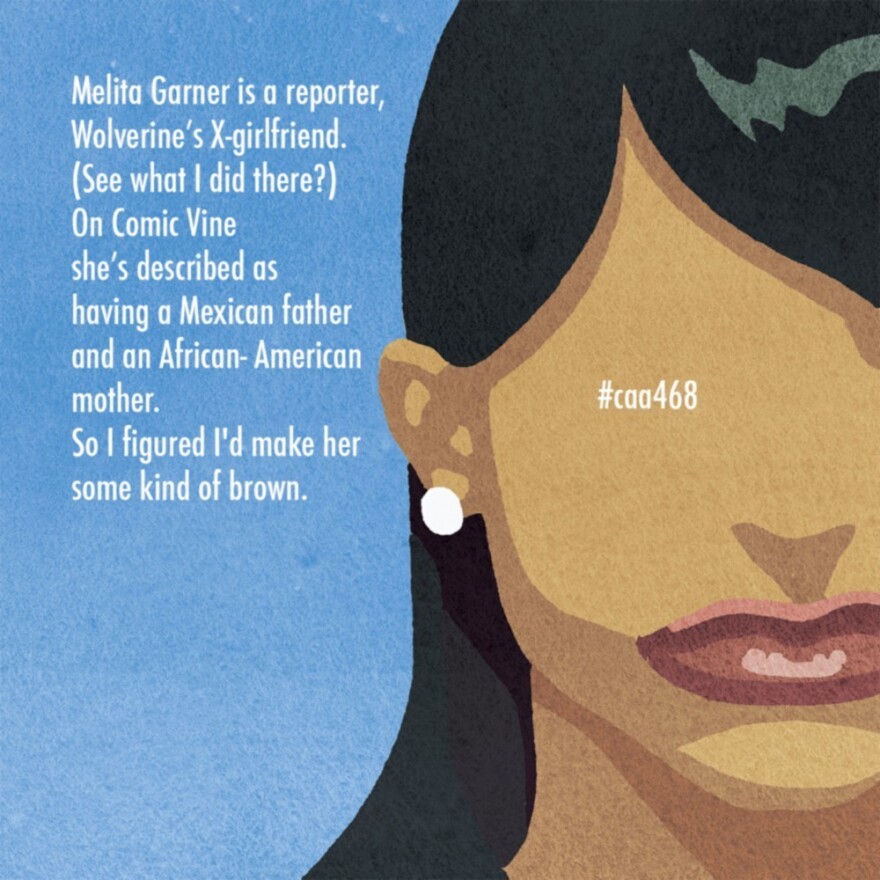In a beautifully illustrated comic over at The Nib, cartoonist Ronald Wimberly relays the story of working with an editor who asked him to lighten the skin tone of a character he was working on, Melita Garner, who has been described as Mexican and African-American, a reporter, and Wolverine's ex-girlfriend.
Given her ethnicity, Wimberly figured he'd "make her some kind of brown." But he got a request from the editor to use a much lighter color instead. "Melita's changed over the years," his editor wrote to him. "i've been told that she is latina and white."

But Wimberly didn't know what to make of that, either. Latinas, he points out in his work, can look very different depending on where they're from. He draws images of three women, an Arab Mexican (hexidecimal ID #ebb8ac), a Japanese-Brazilian (hexidecimal ID #d8b983) and a Dominican (hexidecimal ID #503636) — to show the wide range of skin tones needed to illustrate them.

"Why is it important to change the skin tone of this character a few degrees? What purpose does it serve?" Wimberly wonders. "I wondered if a black editor would have asked me to change her skin tone. I'll keep wondering. After 12 years working in comics, I've yet to have a black editor."
To see and read his entire cartoon essay, visit The Nib.
Copyright 2021 NPR. To see more, visit https://www.npr.org.





